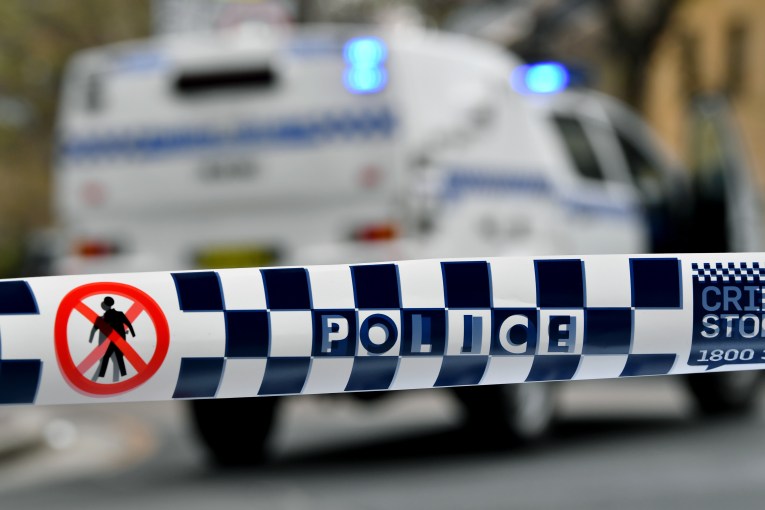‘Warlike’ national cabinet to meet on mass vaccination and home quarantine
Prime Minister Scott Morrison and the premiers will hold urgent talks on Monday as the states push to revive the sluggish rollout by ramping up mass vaccination centres.
Mr Morrison might also have a battle on his hands with reluctant premiers over his idea for home quarantine instead of hotels if overseas travel is resumed.
Mr Morrison sees twice-weekly national cabinet meetings as returning the nation to a “warlike” footing to get vaccination rollouts back on track and bolster wavering public confidence.
The federal government is facing growing criticism of the speed of the rollout and the lack of vaccines could damage public confidence in vaccination overall.
Premiers and ministers will discuss changes to Australia’s vaccination policy at the meeting, including state implementation plans, after advice around the AstraZeneca vaccine and additional supplies of Pfizer doses.
A key component is opening mass vaccination centres.
Victoria is planning to open three centres from Wednesday after NSW and South Australia announced similar plans last week.
“I know some states are very interested in supporting larger vaccination programs now for people aged 50 to 70 and we are very open to discussing that with the states and looking forward to that discussion tomorrow,” Mr Morrison said on Sunday.
“What I stress is that process would be to supplement – in addition to – what the GPs are doing.”
Health Minister Greg Hunt said discussion would focus on how mass-vaccination centres would operate alongside GP clinics that are already rolling out jabs.
“If states wish to expand their offerings, then that’s an option that is available to them individually and there is no one-size-fits-all model that each state and territory will have options going forward,” he said on Sunday.
“We need to be honest that the global challenge with the scientific information, which it was our duty to make sure was considered by ATAGI, and when they made the recommendations, has meant that there are elements that we are reviewing through the national cabinet.”

Scott Morrison could take some lessons from countries that are vaccinating their populations against COVID-19 the fastest.
Health authorities recommend the AstraZeneca vaccine be given only to those over the age of 50 after links to blood clotting in younger people. The news came after ongoing problems getting vaccines out of Europe and starting up production in Australia.
A woman who died from blood clots last week was the third case linked to the AstraZeneca vaccine in Australia. The first two cases are still in hospital.
Mr Hunt said Australia was approaching 1.5 million vaccinations after 330,000 jabs in the past week.
He said GPs remained the cornerstone of the program but – with strong support from governments around the country – national cabinet would consider ways the states can help with larger vaccination clinics.
From Wednesday, Victorians aged over 70 will be able to show up to a vaccine centre and get jabbed without an appointment as the state prepares to scale up its rollout.
Pushback expected on home quarantine
National cabinet is expected to consider an idea floated by Mr Morrison about moving to home quarantine from hotel quarantine if Australia’s international borders are opened.
Premiers are wary about the idea, which experts have said increases risk of community transmission but would free up more places for returning Australians and tourists.
Mr Hunt, however, said home quarantine was possible by the end of the year, starting with fully vaccinated Australians returning from essential travel.
“There is no doubt that this is about progressive opening and progressive opportunities to reduce pressure on hotel quarantine and to provide greater freedoms as we vaccinate more,” Mr Hunt said.
Premiers have questioned whether such a system would require ankle bracelets to monitor travellers.
Mr Hunt said previous home quarantine protocols used by states in early 2020, including random police visits and health department phone calls, could be used.
“That model exists, that model has been in operation,” he said.
“[It] always open to refinement, but the Australian states and territories, in conjunction with the Commonwealth, have largely mastered the security side of home quarantine.”
Momentum surge
Australian Medical Association president Dr Omar Khorshid said the rollout was tracking quite well, but was being weighed down by the perception it was failing.
“It has been characterised as something that’s chaotic and missing its targets, and with vaccines that are of questionable safety, and most of that isn’t actually true,” he said.
“But it’s critical that our state governments and our federal government work together to demonstrate to Australians that they’re on top of this, and that they will roll out these vaccines in a safe and effective way by the end of the year.”
Pfizer is going to play a much more significant part in the vaccine rollout, as it is now the preferred vaccine for Australians under 50.
Mr Hunt said at the weekend Australia would also look to manufacture the mRNA vaccines such as the Pfizer/BioNtech and Moderna doses.
Dr Karen Price from the Royal Australasian College of GPs said questions of supply must be resolved.
GPs will have to be given the capacity to administer Pfizer doses, she said.
“I think we’re going to need all hands on deck here,” she said.
Opposition view
On Sunday, opposition health spokesman Mark Butler said the national cabinet meeting was an opportunity for Mr Morrison to set new goals.
“Scott Morrison must outline a clear plan – to replace his current failed one – that has targets, that has timelines and that has milestones that allow Australians, and Australian businesses, to plan for the future,” he said.
-with agencies








